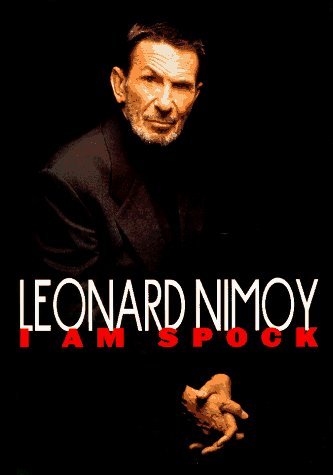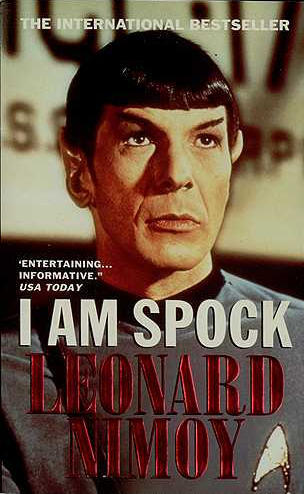I Am Spock (1995)
 |
 |
I Am Spock
Leonard Nimoy
Reviewed by Albert Kim on Sep 29, 1995
Trivia time: Gene Roddenberry, Star Trek's late creator, first offered the role of the enigmatic Vulcan Spock not to Leonard Nimoy, but to DeForest Kelley, the man who would go on to play the series' lovably crotchety Dr. McCoy. Imagine: At this very moment, we could be associating the character of the pointy-eared first officer with Kelley's craggy-faced Southern-gentleman look, rather than with Nimoy's familiar angular features and coolly detached demeanor. Fascinating.
Of course, in reality the role of the emotionally challenged alien went to Nimoy, and now, as with all such iconic figures in pop culture, it is nearly impossible to envision anyone else as Spock. This merging of identities can often be a curse for an actor, a theme that has haunted Nimoy for much of his professional life and one that dominates his new memoir, I Am Spock . Notably, this isn't even Nimoy's first attempt to deal with this conflict. In 1975, he wrote an autobiography entitled, cleverly enough, I Am Not Spock. Clearly, this man has some issues.
Although Nimoy explicitly sets out to redress the damage done 20 years ago by I Am Not Spock — and Trekkies being Trekkies, the damage was considerable — in many ways he has yet to come to grips with his famous alter ego. He tries mightily to cast a healthy light on his current relationship with Spock, but his claims sound thin and forced, like Dr. Frankenstein trying to say he's now on good terms with his monster. In fact, the most compelling parts of I Am Spock are when Nimoy walks us through the vagaries of his own internalized angst. ''The Vulcan was always with me,'' he writes plaintively about his post-Trek acting experiences.
During these moments of obsessive reflection, I Am Spock is genuinely absorbing, as are the times Nimoy delves into his prickly relationship with the show itself. To his credit, Nimoy never denies that he owes his success to his role in Star Trek, and he delights in recounting how jealously he has guarded Spock's image and integrity over the years. He characterizes most of his infamous backstage squabbles — including spats with Roddenberry, costar William Shatner, and Paramount — as merely disagreements over the portrayal of the Vulcan. Often, Nimoy expressed his concerns via memorandums, many of which are sampled in the book. ''My primary interest in contacting you gentlemen,'' goes one memorable memo addressed to Roddenberry and a studio head, ''is my concern over my lack of experience in playing dummies. Perhaps you could arrange to get me educated in this area.''
Unfortunately, the biting clarity of those dashed-off notes is not in evidence for much of I Am Spock. Anecdotes are arranged haphazardly, narrative threads begin and then trail off, and tantalizing tidbits are frustratingly glossed over. (Nimoy drops the startling revelation that he and Shatner had actually worked together before Star Trek, on an episode of The Man From U.N.C.L.E., and then breezily dismisses the incident, claiming he can't remember the details.) Worst of all, to hammer home his points about his internal conflict, Nimoy peppers the book with fictional dialogues between himself and Spock, an annoyingly precious conceit that started -- and should have ended -- in his first book.
Nimoy also has little new to add to Trek lore, as most of his behind-the-scenes stories are familiar and well-worn.
In the end, I Am Spock, which was meant to strike a note of triumphant resolution, actually sounds more like resignation. ''I can only hope that, once in a while,'' Nimoy writes wanly near the end of the book, ''when people look at Spock's visage, they might sometimes think of me.'' Perhaps in another 20 years or so we'll hear a more convincing voice in No, Really, I Am NOT Spock. C+
Source: Entertainment Weekly

